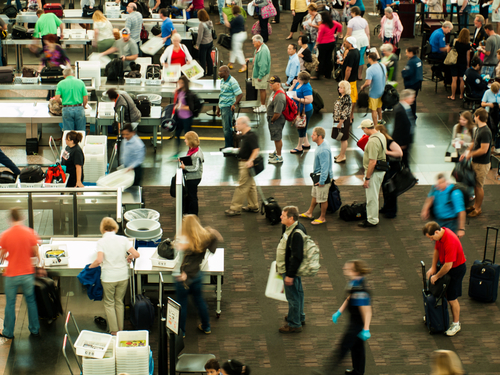
The Transportation Security Administration (TSA) has recently begun implementing facial recognition technology at nearly 30 airports across the nation, with plans to expand this to more than 400 federalized airports in the coming years. This move has sparked a significant debate over privacy and civil liberties, as the TSA assures travelers that they can opt out of the scan by notifying an agent.
Despite assurances from the TSA that the new CAT-2 units are designed to enhance privacy by employing one-to-one verification, concerns remain. The agency claims that photos are compared against government-issued IDs and then deleted, but the language in their media release suggests that photos may be retained in a “limited testing environment” to evaluate the technology’s effectiveness. The lack of clarity on the scope and duration of this data retention has left many flyers skeptical about the true intentions behind this technological push.
Don’t let the TSA use facial recognition on you.
Just one more thing they make you think is mandatory that isn’t. pic.twitter.com/xg44ZZ6Fmh
— Ted Theodore Logan (@TedLogan1010) September 4, 2023
In a rare show of bipartisan agreement, Senators John Kennedy and Jeff Merkley have voiced their opposition to the unregulated use of CAT-2 technology. They argue that the scanners could be exploited and that travelers are not adequately informed about their right to opt out. Their proposed Traveler Privacy Protection Act of 2023 seeks to prohibit the use of these scanners and would require explicit congressional authorization for any future use of facial recognition technology at airports.
The TSA’s rollout of facial recognition technology is being framed as a means to automate the current manual ID checking process, with no intention of using it for surveillance or law enforcement purposes. However, the reassurances provided by the TSA have done little to quell the fears of those who see this as a step towards a national surveillance state.
TSA expands controversial facial recognition program for security and cut waiting time.
It's all fun and games until your social credit score doesn't permit you to board your plane or train. https://t.co/0ICT5dzmmS pic.twitter.com/zf5WxzPdDw
— Songpinganq (@songpinganq) July 6, 2023
The bipartisan support for regulating or banning the technology is noteworthy, with co-sponsors including Republican Senator Roger Marshall and Democratic Senators Edward Markey and Elizabeth Warren, as well as independent socialist Senator Bernie Sanders. This diverse political coalition underscores the widespread concern over the potential misuse of biometric data and the erosion of privacy rights.
As the implementation of facial recognition technology at airports progresses, the urgency to address these privacy concerns grows. The TSA’s initiative is seen by some as a test case for broader applications of surveillance technology, raising the stakes for privacy advocates and civil libertarians.
The debate over the TSA’s use of facial recognition technology is emblematic of a larger conversation about the balance between security and privacy. As the federal government continues to expand its technological capabilities, it is imperative that citizens remain vigilant and demand transparency and accountability to protect their fundamental rights.
In conclusion, while the TSA’s efforts to streamline airport security checks through facial recognition technology may offer some efficiency gains, the potential costs to personal privacy and civil liberties are too great to ignore. It is crucial that the public remains informed and engaged in discussions about the use of such technology, and that lawmakers take decisive action to ensure that privacy protections keep pace with technological advancements.










